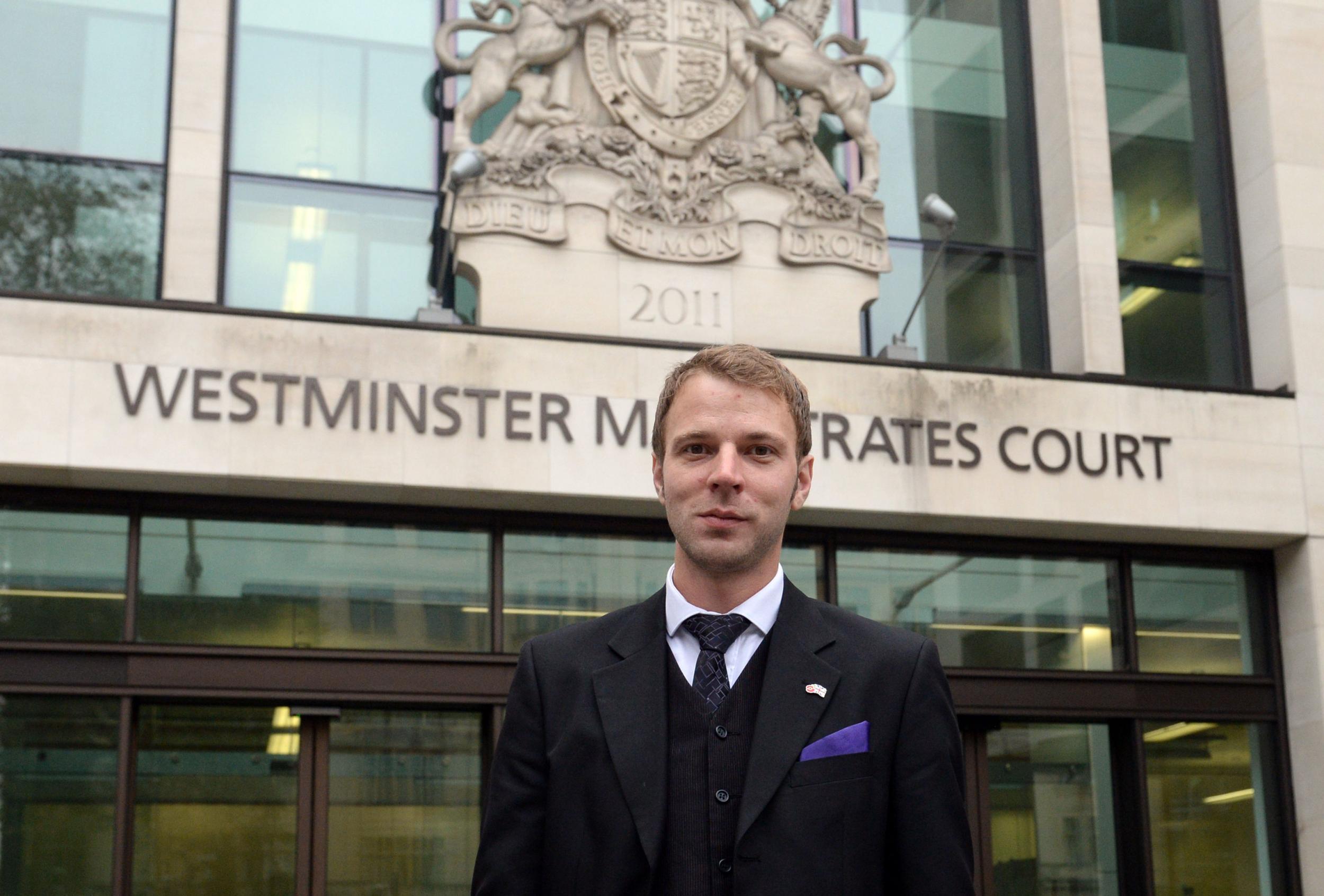British father spared extradition to Greek jail over minor holiday car crash 13 years ago
Judge criticises 'appalling delay' that led to Paul Wright saying the first he knew about being convicted in his absence in Greece in 2006 was when a Wrexham police officer knocked on his door in March 2016

Your support helps us to tell the story
From reproductive rights to climate change to Big Tech, The Independent is on the ground when the story is developing. Whether it's investigating the financials of Elon Musk's pro-Trump PAC or producing our latest documentary, 'The A Word', which shines a light on the American women fighting for reproductive rights, we know how important it is to parse out the facts from the messaging.
At such a critical moment in US history, we need reporters on the ground. Your donation allows us to keep sending journalists to speak to both sides of the story.
The Independent is trusted by Americans across the entire political spectrum. And unlike many other quality news outlets, we choose not to lock Americans out of our reporting and analysis with paywalls. We believe quality journalism should be available to everyone, paid for by those who can afford it.
Your support makes all the difference.A judge has criticised “appalling delays” by the Greek authorities while sparing a British father extradition to Greece over a minor car crash that happened 13 years ago.
Paul Wright, 34, claimed that he was not even the driver of a car that crashed in Crete in May 2003, and that the first he knew about having been convicted in his absence was in March 2016 “when a police officer from Wrexham turned up at my door with the [European arrest] warrant.”
If extradited, the father-of-two could have spent months in a Greek jail.
But instead District Judge Mike Snow discharged him from Westminster Magistrates’ Court and criticised the "appalling" delay between the minor crash and officers turning up at Mr Wright’s door in North Wales more than a decade later.
The judge had been told how the crash happened when Mr Wright, from Mold, Flintshire, north Wales, was visiting Malia, Crete, on holiday as a 21-year-old.
Mr Wright, whose wife is expecting their third child, said he was a passenger in a car driven by his friend who had offered to move it for a bar worker they had got to know during their break.
Mr Wright claimed his friend was driving when the car collided with a parked scooter a little further down the road.
He said the car owner had accused him and his friends of "stealing the car" but that Greek police then told the owner: "You gave them the keys, it's your responsibility. There's nothing more that I can do."
"As far as I was concerned,” Mr Wright told the court, “It was all over with."
Instead, the extradition hearing was told, the authorities in Crete summonsed him to attend trial on October 2 2006 in Greece. By then, however, he had moved from the Birmingham address he had given to the Greek police, so he failed to receive the notice.
In his absence, a court in Heraklion, the administrative capital of Crete, tried the case in 2006 and sentenced Mr Wright to 15 months' imprisonment or a fine for criminal damage and for taking a motor vehicle without consent.
Speaking ahead of Tuesday’s extradition hearing Mr Wright told NewsNorthWales that a European arrest warrant (EAW) was issued in 2009, but the first he knew of it was when “In March this year I got a knock on my door and it was a police officer from Wrexham asking me about what had happened on holiday.”
“I was in France earlier in the year,” Mr Wright added, “So I assumed he was talking about that, but he said ‘No, when you were in Greece’, and then it clicked with me.
“I thought he was going to take me to Wrexham station – but he told me that it wasn’t Wrexham, it would be Westminster Magistrates.”
He opposed extradition on five grounds including his right to family life and that he did not know about the summons when it was made.
The judge sided with him and discharged him from the court, saying he was not satisfied that Mr Wright had deliberately absented himself from proceedings.
The judge gave the prosecution seven days to appeal, but added: “There has been no explanation for the delay of three years between the offending and his conviction, the further delay of three years before the EAW was issued or the further delay of six years before it was sent to the UK authorities.
"The delay in this case is appalling."
Mr Wright thanked the judge before he left the courtroom.
Earlier, he had explained how he couldn’t afford to pay the Greek authorities a fine of 4,555 euros (£4,100) that would have allowed him to be spared jail because he was currently unable to work due to a problem with his spine.
Insisting that he was “completely powerless”, a visibly nervous Mr Wright told the judge: “My fate is in your hands”.
"In a period of a year I've lost my health, I've lost my job, I've lost my career - everything - my savings, and now I've got my family life and liberty at risk.”
“I have,” he added, “Done nothing wrong.”
Speaking on his behalf outside court, his solicitor Sean Caulfield said: “We are delighted with the court’s decision. The judge agreed that extradition should not be ordered because Mr Wright had not deliberately absented himself from his trial in Greece and that he had no right of appeal against his conviction.
“Extradition would have had a significant detrimental impact on his health, family and finances.”
Join our commenting forum
Join thought-provoking conversations, follow other Independent readers and see their replies
Comments